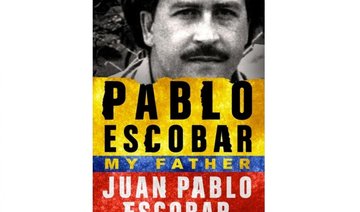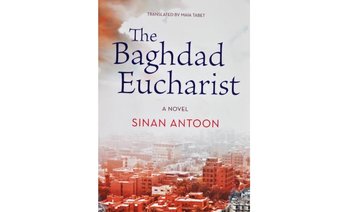The popularity of Russia’s President Vladimir Putin seems undiminished since the high ratings he received three years ago regarding the reunification of Crimea. What is also remarkable is that his reputation appears to be unaffected by the country’s recent economic troubles. However, in the wake of recent protests, feelings of discontent and mounting criticism are a growing challenge for the Kremlin.
“Putin Country: A Journey into the Real Russia” takes us to Chelyabinsk, a city which became a hub when it was linked to Siberia in 1896 with the Trans-Siberian Railway.
Author Anne Garrels chronicles the development which has taken place in the area she calls the “real Russia” through the prism of Chelyabinsk since 1993, two years after the breakup of the Soviet Union. In those days, Chelyabinsk, like other Russian towns, was a sad-looking place reflecting the total collapse of the economy. Moscow was still the richest and most powerful city and it was developing fast.
From the 1930s, the entire region of Chelyabinsk, the size of Austria, had been isolated from the rest of the country because of its secret military installations. Russians still remember the days of anarchy during the 1990s when hunger, unemployment and poverty were rampant. They now aspire to live in an economically stable country and believe that Putin has reinstated national pride.
The 1990s provided an opportunity for a few well-connected individuals in Moscow to make a fortune but for the majority living in the rest of Russia, democracy and reform came with hunger, crime and poor-quality social services.
“Even today, few Westerners fully appreciate how unpopular (former president) Boris Yeltsin and his circle of Westernized and Western-supported advisers had become,” Garrels wrote.
When Yeltsin stepped down at the end of 1999, he named the unknown Vladimir Putin as his successor. Under Putin, Russians benefitted from higher prices of oil, gas and raw materials. Salaries were paid, pensions increased, social services improved and soaring inflation was brought under control.
Ten years after Putin came to power, the Russian economy was flourishing. This created a consumer boom and sparked the emergence of a middle class. Change was visible everywhere. The center of Chelyabinsk was completely renovated with a beautiful cobbled street lined with elegant shops, cafes and restaurants.
“Clothing stores — from Chanel, Max Mara and Escada to more affordable chains like H&M — sell Western apparel for stylish Russian women who effortlessly stroll (along) the cobblestones in four-inch heels… The new generation of Russian women have access to the best makeup, salons, spas and fitness clubs, not to mention plastic surgery. It’s a far cry from the babushkas of the recent past,” Garrels wrote.
When the author arrived on her first visit in 1993, Chelyabinsk had no decent hotels but 20 years later, American and European hotel chains cater to Russian and foreign customers.
Many Russians who have access to credit are either buying new houses or renovating their homes with designer bath tiles and European-style kitchens. There are also many travel agencies as it is a booming industry. Russians from all walks of life look for sun and fun in Egypt, Turkey, Thailand and Dubai.
It seems that Russians are still trying to understand who they really are and where they fit in the world. Despite the positive changes, some regret the demise of the Soviet Union and blame scapegoats for existing problems, according to the book.
The government and the state-run media constantly reference the existence of a Western conspiracy, creating suspicions which, according to Garrels, “are not without foundation.”
Jack F. Matlock, the American ambassador during the breakup of the Soviet Union, believes that the end of the Cold War was not a victory but a negotiated agreement that was intended to benefit all sides and boost future cooperation. However, the US has tended to treat Russia as a loser and took advantage of its weakness, thus fomenting feelings of humiliation and revenge. Therefore, Putin struck a chord with proud Russians. His policy on Crimea has raised his popularity and, despite the economic sanctions, many Russians stand by their president’s policy regarding Ukraine.
Still struggling
Russia is still struggling with a demographic crisis. While the US has a population of just over 300 million, Russia has only 142 million in a country twice the size. The government has come up with a number of programs to increase the domestic birthrate. Parents receive a payment for each child born after the first child and a woman’s job is guaranteed for two years after birth.
Nowadays, young people are getting married later. They often leave the family home and relocate to other towns in search of a job. Grandmothers, who used to help take care of the children while their parents were at work, often have a career of their own or they decide to work in order to increase their meager pension.
However, a number of middle class business owners who fear an uncertain future are leaving Russia. They are not the only ones as the country’s talented graduate students have also criticized the lack of opportunities in the field of physics and economics. They say that their countrymen must realize that oil and gas must not prevent the government from creating and developing new industries.
Young people in Russia, like the rest of the world, spend hours on the Internet. Many are concerned about moral degradation and they resent the fact that money is so highly valued. Indeed, the fact that universities are no longer free has created a new class of students who feel free to do whatever they want. Some students bribe their professors to avoid failing exams and the quality of higher education in some establishments has deteriorated as a result.
“A Fulbright scholar at the Teacher Training University was also stunned by the utter apathy of her students. When she showed them a few TED talks and asked them what they thought about the issues, they said: ‘That’s not for us to think about. The government, which is wiser than us, will decide’,” Garrels wrote.
However, in an era of international sanctions and the falling price of oil, can Putin still make the right decisions for the country? Moving forward could prove to be an impossible task.
Book Review: Take a journey into the real Russia
Book Review: Take a journey into the real Russia

What We Are Reading Today: Out of One, Many

Author: Jennifer T. Roberts
Covering the whole of the ancient Greek experience from its beginnings late in the third millennium BCE to the Roman conquest in 30 BCE, “Out of One, Many” is an accessible and lively introduction to the Greeks and their ways of living and thinking. In this fresh and witty exploration of the thought, culture, society, and history of the Greeks, Jennifer Roberts traces not only the common values that united them across the seas and the centuries, but also the enormous diversity in their ideas and beliefs.
Examining the huge importance to the Greeks of religion, mythology, the Homeric epics, tragic and comic drama, philosophy, and the city-state, the book offers shifting perspectives on an extraordinary and astonishingly creative people.
Century after century, in one medium after another, the Greeks addressed big questions, many of which are still very much with us, from whether gods exist and what happens after we die to what political system is best and how we can know what is real. Yet for all their virtues, Greek men set themselves apart from women and foreigners and profited from the unpaid labor of enslaved workers, and the book also looks at the mixed legacy of the ancient Greeks today.
The result is a rich, wide-ranging, and compelling history of a fascinating and profoundly influential culture in all its complexity—and the myriad ways, good and bad, it continues to shape us today.
What We Are Buying Today: ‘If Cats Disappeared from the World’

- Beautifully written and emotionally moving, it is also a testament to the power of storytelling and reminds people of the deep impact of making personal choices and connections
Author: Genki Kawamura
“If Cats Disappeared from the World” is a novel written by Japanese author Genki Kawamura. The book was published in 2012 and was rated 4/5 by over 75,000 readers worldwide.
Kawamura is a worldwide bestselling author. “If Cats Disappeared from the World” was his first novel, which sold over 1 million copies in Japan and was translated into over 14 languages.
In this novel, Kawamura tells the story of a postman who is diagnosed with an uncurable illness. However, when he accepts his destiny, the Devil appears to him with an unusual proposal. The postman must choose one thing to eliminate from this world for him to live one more day. During his journey, the postman then starts examining the true value of everything he owns.
Kawamura’s writing style is simple yet evocative, inviting readers to dive deep into the layers of their own emotional journey with every page. The narrative provides a delicate balance between moments of happiness and sorrow, using cats as a symbol of companionship and joy.
Moreover, the book allows readers to reflect on the value of relationships and experiences. It raises questions regarding the decisions people make, the legacies they leave behind, and the core meaning of everyday moments, which eventually shape people’s characters and how they think.
The novel encourages people to take a deep breath and reflect on the blessings people have, yet neglect, due to their busy lives.
With Kawamura’s thoughtful message and memorable characters, this novel is a compelling exploration of the human experience, providing comfort and inspiration, and a new appreciation for the beauty and brevity of life.
Beautifully written and emotionally moving, it is also a testament to the power of storytelling and reminds people of the deep impact of making personal choices and connections.
What We Are Reading Today: ‘Chinese Espresso’ by Grazia Ting Deng

Italians regard espresso as a quintessentially Italian cultural product—so much so that Italy has applied to add Italian espresso to UNESCO’s official list of intangible heritages of humanity. In this book, Grazia Ting Deng explores the paradox of “Chinese Espresso”— the fact that this most distinctive Italian social and cultural tradition is being preserved by Chinese immigrants and their racially diverse clientele.
What We Are Reading Today: ‘Bartleby and Me’

Writers love to write about writing and none seemingly more so than Gay Talese, the journalist known as a pioneer of the American literary moment called “New Journalism.” This style of writing originated in the 1960s and ‘70s and combines journalistic research with creative non-fiction.
Talese started his career as an obituary writer at the New York Times and, later, as a magazine writer who ended up reluctantly penning the most widely read magazine articles of all time. He showcases some of that editorial wisdom — and reporting mishaps — in his 2023 book, “Bartley and Me: Reflections of an Old Scrivener.”
Now 92 years old, he writes vividly about his early reporting days and the stories behind the stories; he masterfully weaves in stray strands that somehow come together into a coherent narrative. Talese writes crisp copy. He writes about nobodies and somebodies with equal fervor.
He recalls his time as a young reporter on assignment where, at the insistence of his persistent editor, he attempted to sit down for an interview with the elusive and super-famous star Frank Sinatra. Talese recounts how he repeatedly tried — and failed — to pin down “Ol’ Blue Eyes” while chasing him around California in the 1960s. He eventually published his distinctively titled profile, “Frank Sinatra Has a Cold,” in the April 1966 issue of Esquire. That piece of writing is considered one of the most celebrated pieces of magazine journalism to date.
Talese’s tales are mostly centered around his time in New York. He recalls things in meticulous detail — for example, pointing out the exact address and precise building within a neighborhood to help the reader visualize the space. The city is always a leading part of the story.
“New York is a city of things unnoticed,” he wrote 60 years ago, something that could easily be written today. He recalls the early days of his journalistic career in New York, churning out newspaper copy and still, now, being ever-so-curious about everything. The pages of this book show that we all, alongside him, still have much more to notice.
The title of the book was inspired by American author Herman Melville’s short story, “Bartleby, the Scrivener: A Story of Wall Street,” published in the 1800s. This is a social criticism piece about a lawyer who hires a peculiar scrivener or clerk, Bartleby, and the adventures (or misadventures) that ensue.
In his version, Talese shares with us a fresh piece of original reporting titled “Dr. Bartha’s Brownstone,” which is his version of “Bartleby.” This time, however, Bartleby is an unknown doctor who makes his bombastic mark on the city one random summer day. It is a brilliant piece of journalism about journalism.
What We Are Reading Today: ‘The Proof Stage’ by Stephen Abbott

The discovery of alternate geometries, paradoxes of the infinite, incompleteness, and chaos theory revealed that, despite its reputation for certainty, mathematical truth is not immutable, perfect, or even perfectible.
Beginning in the last century, a handful of adventurous playwrights took inspiration from the fractures of modern mathematics to expand their own artistic boundaries.



















